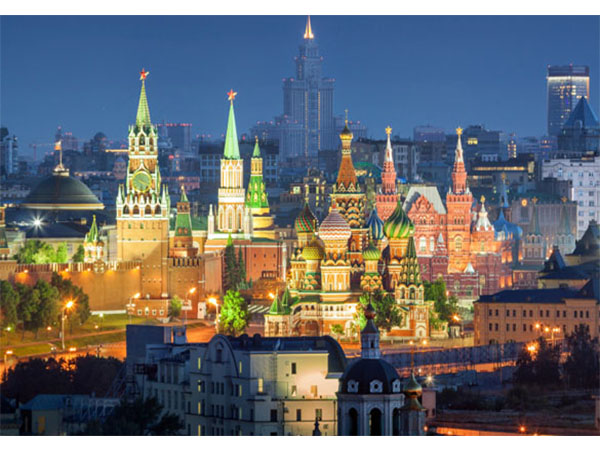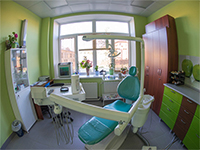Russia - Most Advanced Dentistry

Country Profile
Russia, also officially known as the Russian Federation, is a country in Eurasia. Russia's capital Moscow is one of the largest cities in the world. Russia's extensive mineral and energy resources are the largest such reserves in the world, making it one of the leading producers of oil and natural gas globally. Ethnic Russians comprise 81% of the country's population.
Russia is served by an extensive system of automatic telephone exchanges connected by modern networks of fiber-optic cable, coaxial cable, microwave radio relay, and a domestic satellite system; cellular telephone service is widely available, expanding rapidly, and includes roaming service to foreign countries. There are three mobile phone service brands that cover all Russia: Beeline, MegaFon and Mobile TeleSystems. Broadband internet access is becoming more readily available in Russia.
About a third of Russians (30%) speak English to one degree or another: 20% can read and translate using a dictionary, 75% are familiar with the colloquial language, and 3% are fluent speakers, according to Romir Research Holding. The percentage of persons who speak English is higher amongst people aged from 18 to 24 and lower in older groups.
One of the best ways to make your trip to Russia (or anywhere, really) easier is to learn some Russian words and phrases before you go. If you want to travel in Russia longer, go to remote regions, or just get to know the country & culture better, I would suggest learning the alphabet and taking some additional Russian language lessons.
Russian Dental Industry
Dentistry as a sector of the Russian healthcare industry has grown to become possibly the most advanced and potent aspect of the Russian medical market. The Russian dental industry is widely privatized. There is minimal government-funded dental care treatment. State dental clinics, which deliver a limited amount of free dental services, obtain payment for them either from Mandatory Medical Insurance Funds or Voluntary Medical Insurance Programs. Private dental clinics or fee-for-service departments in state dental clinics, which supply the largest majority of dentistry services in the larger cities and urban areas, charge patients directly. With disposable incomes growing in Russia intensively, dentistry is starting to become an important emphasis not only for high-income but additionally for middle-income and low middle-income groups. The Russian dental market possesses huge potential. The numbers of clinics, practicing dentists, technicians and patient visits are rather high. There are more than 89,000 dentists and more than 22,000 technicians who operate in state dental clinics and more than 21,000 dentists and more than 13,000 technicians who are employed in private dental clinics.
The dental market is amongst the most highly regulated and structured marketplaces in Russia. Professional dental industry associations play a significant role in controlling and developing the Dentist technology market across Russia. The Russian Dental Association has 69 regional divisions. Dental Industry Association (RDI – ROSI) was established in the year 2000 with 50 members.
Getting There for Dental Care
By Air: You can fly to Moscow's Domodedovo International Airport (DME) and St. Petersburg's St. Pete–Clearwater International Airport (PIE) from most major airports. Getting to other Russian cities is not always as easy; however, even if there isn’t a direct flight from your closest airport (like, for example, to Murmansk), you can usually fly to Moscow and from there take a connecting flight. If you are going to do this, however, don’t forget to check the airports you are flying from – getting from one to another in Moscow can be difficult.
Hint: If you are going to be traveling through Europe anyway, don’t forget to check out small local airlines such as Germanwings - Eurowings and Rossiya Airlines, which sometimes have very cheap flights to Russia. You can also consider the following options if you are on a budget: by Train: Two trains (one day train and one overnight) run from Vilnius, Lithuania to St. Petersburg. You can also catch a train to St. Petersburg from Helsinki, Finland. You can get to Moscow by train from Riga, Latvia. Within Russia, you can (and should, unless you’re very tight on time) travel anywhere by train. If you’re going to Siberia in the east, you may even have no other choice, as flights can be rare and prohibitively expensive. By Bus: From Riga (Latvia), you can take a cheap bus to St. Petersburg. It takes about 11 hours.
Visitor Highlights
The largest country in the world, Russia offers a broad array of travel experiences, from treks up the slopes of glacier-capped mountains of Valley of Geysers and Mount Elbrus to strolls along the shoreline of Earth’s oldest lake the Lake Baikal. Historical sites and cultural activities in the country’s great cities abound as well. Whether you’re exploring the grounds of Moscow’s Kremlin, Hermitage Museum and Saint Basil's Cathedral or wandering through the steppes of Mongolia, a visit to Russia is an adventure not soon forgotten.

